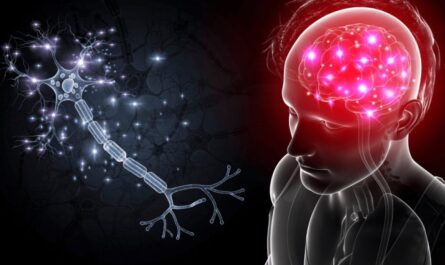A new study has shed light on the fascinating relationship between the human gut microbiome and diet, with a particular focus on the role of dietary fibers. When consumed, dietary fibers found in plant-based foods are broken down by gut bacteria into small molecules called short-chain fatty acids (SCFAs). Over the years, research has uncovered numerous anti-inflammatory and immunomodulating effects of SCFAs.
One such effect involves their interaction with mast cells (MCs), which are white blood cells filled with enzyme and signaling molecule-loaded sacs called granules. MCs detect foreign bodies, or antigens, and become active, releasing these substances and triggering an immune response. In allergic diseases, MCs play a central role.
Although the anti-allergic properties of SCFAs are well-established, the precise mechanisms by which they regulate MC function have remained elusive. In a recently published study in The Journal of Immunology, Professor Chiharu Nishiyama and his team at Tokyo University of Science sought to uncover these mechanisms through experiments on mouse MCs and SCFAs.
The researchers discovered that butyric acid and valeric acid, two representative SCFAs, significantly suppressed passive cutaneous anaphylaxis in mice, a commonly studied allergic reaction induced in lab settings. Treating MCs with various SCFAs demonstrated that these molecules also suppressed immunoglobulin E (IgE)-mediated activation, a critical pathway in allergic reactions.
Through further experimentation involving genetically modified cells and RNA inhibitors, the team pieced together the puzzle. They found that SCFAs mediated MC activation in two main ways.
The first mechanism involved the interaction between SCFAs and the GPR109A receptor. This interaction initiated a chemical cascade that led to the synthesis and secretion of prostaglandins. These substances then interacted with EP3 receptors in MCs, preventing degranulation and minimizing allergic response.
The second mechanism centered on epigenetics, specifically the reversible alteration of specific genes. The researchers confirmed that SCFAs influenced histone deacetylase inhibitory activity, which regulates epigenetic modifications. This resulted in changes in the expression levels of the IgE receptor, ultimately inhibiting degranulation in MCs.
Further experiments revealed that non-steroidal anti-inflammatory drugs hindered the anti-allergic effects of SCFAs, while vitamin B-3, which interacts with the GPR109A receptor, also inhibited MC degranulation.
This study highlights how the gut microbiome’s ability to process dietary fibers can have significant impacts on allergic reactions. By understanding the mechanisms through which SCFAs regulate MC function, researchers can further explore the potential therapeutic applications of these molecules in managing allergies. These findings contribute to the growing body of research on the complex relationship between diet, gut bacteria, and human health.
*Note:
1. Source: Coherent Market Insights, Public sources, Desk research
2. We have leveraged AI tools to mine information and compile it




